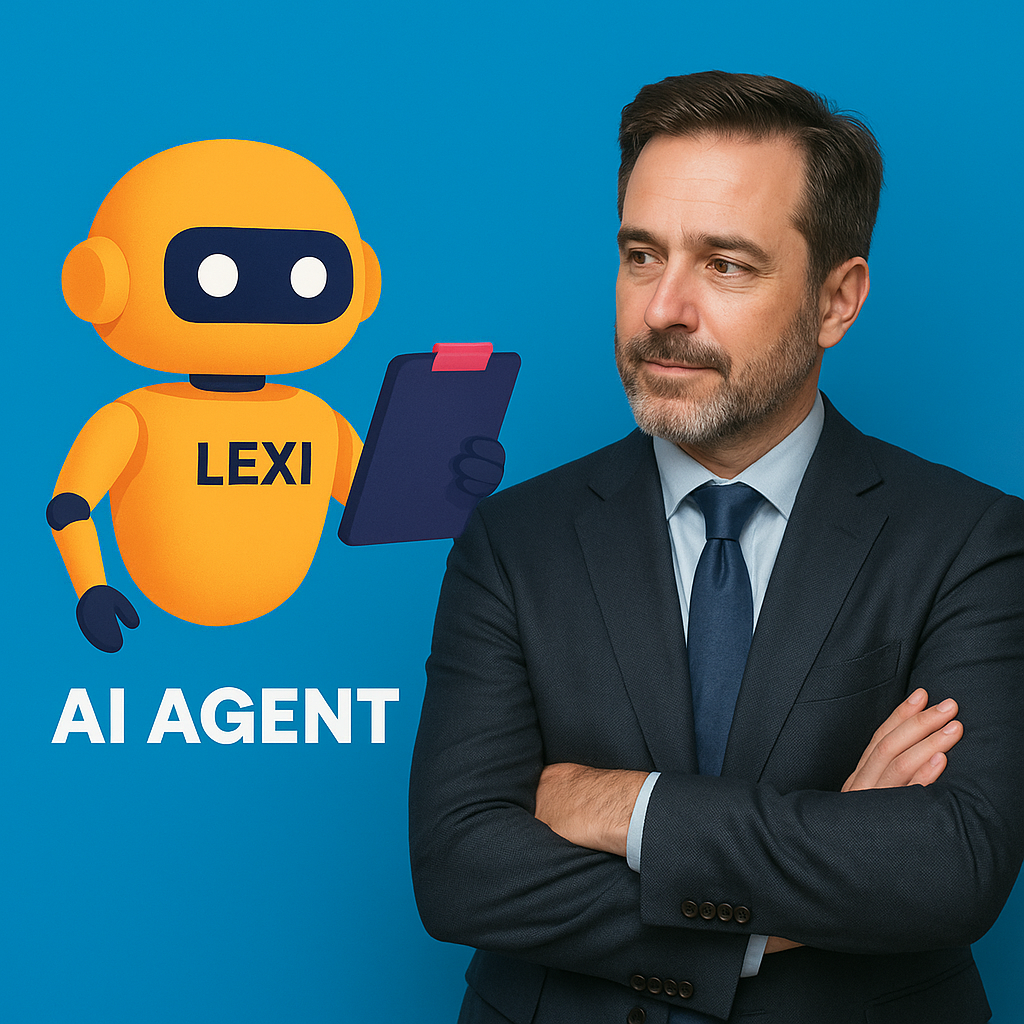Imagine hiring a junior associate who never sleeps, never forgets, and can learn new tasks in minutes. They don’t need breaks, they don’t make small talk, and they never miss a deadline. Sound like science fiction? It’s not. It’s the arrival of the AI agent in the legal profession.
Mini series on AI Agent – Part 1 of 5
What Exactly Is an AI Agent?
To understand an AI agent, think of it as a goal-oriented assistant with a measure of autonomy. Unlike traditional software tools that require you to click every button and provide every command, an AI agent can be given an objective—say, “summarize all case law related to X” or “organize these documents by relevance”—and then go off and complete it. It knows how to gather the necessary information, evaluate options, and take steps toward the goal, often learning as it goes.
The best analogy? Imagine a junior associate trained with encyclopedic knowledge, a task list, and the judgment to prioritize their work—all with a speed and consistency no human can match.
Not Just Another Chatbot – Switching to Reactive to Active
Let’s be clear: an AI agent is not your average chatbot. While chatbots respond to queries, AI agents execute, making the process active. They can string together multiple steps, adapt when conditions change, and even collaborate with other agents or systems to complete tasks. They’re not just answering questions—they’re getting things done. See what Clio did with Clio Manage AI, Grow AI and Draft AI. Agents are changing programs from collecting data to executing tasks.
Two Examples: Real Tasks, Real Impact
1. The Due Diligence Powerhouse
Picture this: your firm is handling an M&A deal. There are hundreds of contracts to review for change-of-control clauses, indemnification provisions, and termination terms. Instead of assigning a swarm of junior lawyers to spend days combing through documents, an AI agent is tasked with identifying and categorizing all relevant clauses. It systematically reviews each contract, flags issues, highlights anomalies, and presents the findings in a structured report. The partner overseeing the deal gets actionable insights within hours, not days—with a full audit trail and confidence in consistency.
2. The Compliance Radar
Regulations evolve constantly, and missing a change in your jurisdiction can mean big trouble. An AI agent can be configured to monitor legislative updates, court rulings, and agency guidance. For a financial services client, for example, the agent keeps tabs on relevant regulatory bodies. When a new rule is proposed or a precedent is set, it notifies your team, highlights the implications, and even suggests updates to internal compliance checklists. It’s like having a full-time policy analyst who never blinks.
Why Law Firms Should Pay Attention
Legal work is complex, high-stakes, and deeply reliant on knowledge. Yet much of what happens in firms involves repeatable processes: reviewing documents, conducting research, managing timelines, coordinating teams. These are precisely the kinds of tasks AI agents excel at.
By leveraging AI agents, law firms can:
- Enhance productivity without increasing headcount
- Free up lawyers to focus on high-value, strategic work
- Improve accuracy and reduce human error in repetitive tasks
A Glimpse Ahead
This is just the beginning. In our next post, we’ll dive into the real-world use cases where AI agents are already transforming how legal work gets done—from due diligence and compliance to client intake and internal knowledge management.
The bottom line? The AI agent isn’t coming. It’s already here. And it just might be your most reliable new colleague.

